AudioCulture
The noisy library of New Zealand music
Te pātaka korihi o ngā puoro o Aotearoa
Jordan Rakei
Jordan Rakei was born in 1992 in Tokoroa, a Waikato town often associated with the forestry, timber, and paper industries. When he was three years old, his Cook Island Māori father and Pākehā mother relocated the family across the Tasman to Brisbane, Australia, where he lived for the next 19 years.
Although the Rakeis moved to pursue a better life, Jordan’s father never let Jordan or his brothers forget about home. “It was important to him that we were New Zealanders in Australia,” Jordan told me in 2017. “It was a big thing. Even with basic stuff like sports, Dad would always make sure we supported New Zealand teams. It’s a weird one, I was raised in Australia, but I am the product of New Zealand culture. I was raised by Kiwis.”
Music was a big part of his childhood. In a 2021 interview with the Albumism website, Jordan mentions going through his father’s collection as a kid and coming across something that stood out from the Bob Marley CDs – a volume of the storied French Saint-Germain-des-Prés Café acid jazz/nu-jazz compilation series.
“I used to think of it as loungey hip-hop when I was that age,” he said, “and I used to google each artist and song. I’d google ‘hip-hop with jazz chords but not hip-hop’. I just fell in love with that whole left-field soul kind of thing, and even now, that’s really my sound.” Outside of acid jazz and reggae, he also notes his mother’s taste for Motown soul as a crucial influence.
By the time he was 11, Jordan was making beats on a computer with the influential digital audio studio workstation FL Studio, then known as Fruity Loops. “Back then, it was more like a game,” he remembers. “Me and my brother would take turns seeing who could make the best beat in 10 minutes.”
Three years later, his father bought him an AKAI MPC sampler and a Mac, and a guitar followed. During his mid-teens, his parents divorced. “I played the guitar all the time in my room and would post Stevie Wonder covers online,” Jordan said. “I kept my headphones on and my head down. I never went out or partied.”
Thanks to a generous offer from his family, Jordan was able to make good on the first phase of his dreams.
After he finished high school, Jordan took a job at a supermarket and started saving money. His goals were simple, buy more studio gear, record his first EP, and buy flights to the UK to pursue his music dreams. At the time, his father and younger brother were working in the mines in Perth, and they made him an offer. If he quit his job and focused on music full-time, they’d provide him with some financial support.
Unsurprisingly, Jordan accepted. Thanks to this generous offer, Jordan was able to make good on the first phase of his dreams.
In 2013, he self-released his debut EP, Franklin’s Room, through Bandcamp and Soundcloud. A set of neo-soul, reggae, and R&B tracks, Franklin’s Room brought Jordan to the attention of Brisbane-based record label Soul Has No Tempo and the influential Los Angeles music collective, Soulection.
Soul Has No Tempo released his second EP, Groove Curse, in 2014. That year, the American soul and R&B blog Soul Bounce described Groove Curse as “chock full of soulful goodness” while noting that Jordan had a “warmness that that is reminiscent of early D’Angelo without hampering the discovery of [his] own personal style.”
In the wake of the release of his early projects, Jordan found contemporaries in two generations of New Zealand, Australian and American musicians, beatmakers, and DJs that included Noah Slee, Louis Baker, Hiatus Kaiyote, Ta-ku, Mr. Carmack, Fat Freddy’s Drop, and the Soulection crew, while pricking up ears across North America and Europe. While collaborating with like-minded musicians across Australia and New Zealand, he felt a hunger to take things even further. The UK was calling.
In 2015, Jordan made the move to London. On arrival, one of the first things he did was record a song titled ‘Masterpiece’ with popular English future garage duo Disclosure for their second album, Caracal. As he tells it, the connection came about through English pop singer-songwriter Sam Smith, who played his music to Disclosure in the studio and connected them. The following year, Jordan renewed his relationship with the Soul Has No Tempo label by releasing his debut album Cloak through them.
Practising meditation, Jordan found his thoughts began to flow out freely as music.
While he was writing Cloak, Jordan began to practise meditation. At the time, he saw it as a way of dealing with the anxieties and fears that had long quietly plagued him. “I had all these ideas trapped in my head because I was too afraid to say them in person,” he admitted. “When I started meditating, I could analyse my subconscious.” His thoughts began to flow out freely as music. “Music is just an easier language for me,” he admits.
On 10 August 2016, Cloak was dubbed Album Of The Day by Bandcamp Daily, who praised Jordan’s jittery, “boom-clap” kick drums, warm and enveloping keyboards, and jazz-inflected vocals. Similarly, UK music blog The Line of Best Fit described it as “[An] inventive, constantly bewitching collection of neo-soul-slash-dance-slash-pop tracks that burst with vivid rhythms and bright melodies.”
Between ‘Masterpiece’ and Cloak, Jordan had a solid introduction to the UK music scene. Soon enough, he was opening for electronic soul and jazz-funk stars including NAO, Jamie Woon, Hiatus Kaiyote, and Fat Freddy’s Drop. He also received radio support from UK tastemakers such as Annie Mac, Huw Stephens, Mary Anne Hobbs, and Gilles Peterson on BBC Radio 1 and BBC Radio 6 Music.
Once he was settled in London, Jordan broadened his circle by connecting with a new generation of electronic jazz musicians, rappers, and dance music DJs, including Yussef Kamaal, United Vibrations, Tom Misch, Alfa Mist, Barney Artist, Loyle Carner, Richard Spaven, and Bradley Zero. He found a particular kinship with Tom, Barney, and Afla, leading to the four friends forming the Are We Live Crew as a platform to put on gigs, record podcasts, and make music together.
In response to the inspiration London provided him with, he started producing deep house and broken beat records under the alias Dan Kye for Bradley Zero’s Rhythm Section International label. A new era was dawning for the London scene, and Jordan was more than ready to take part.
Jordan told Australian blog Purple Sneakers in 2021, “I was able to infiltrate these scenes so early on, and now I consider myself really lucky because I can go to a festival, hang backstage, and know half of the British acts, which is cool. And that’s why it’s amazing: it’s such an open music community where everyone’s friends with everyone, and together we all collaborate and support each other. That’s why I love it here and will probably stay here for the foreseeable future.”
Not long after, Jordan signed to the legendary independent label Ninja Tune and began preparing for the 2017 release of his second album, Wallflower. At the time, Ninja Tune’s international manager Nicky Wain said, “It’s seldom you come across an artist who can write, play, produce and perform to the level Jordan can. We’ve been huge fans since he started to release music, and after seeing his performance at London’s esteemed Jazz Café, it was clear we wanted the honour of releasing his music and working to get it in front of the world.”
When I profiled Jordan in 2017, I observed that if Cloak was about looking inward, Wallflower was about dealing with what Jordan found there and finding a way out. With assistance from Dave Okumu of The Invisible, and Ahmad Dayes and Wayne Francis II from United Vibrations, he verbalised his anxieties and fears in a collection of songs that interwove modern soul and jazz with dashes of psychedelia and shimmering electronica.
On the Wallflower album, Jordan made explicit references to every stage of his musical development.
In the process of crafting Wallflower, Jordan made explicit references to every stage of his musical development. The programmed MPC drum grooves of 90s hip-hop came together with chords inspired by Robert Glasper and D’Angelo, and the echoes of his childhood memories of dub reggae. Dressed up in his love of New Zealand-based hi-tek soul bands Fat Freddy’s Drop and Electric Wire Hustle, it was an ambitious statement of intent. Celebrated by US and UK media outlets such as The FADER, Evening Standard, and Mixmag, Wallflower was voted the #2 Album of the Year at Gilles Peterson’s prestigious Worldwide Awards. As Clash Magazine put it at the time, noting that Jordan was only 25, “Wallflower is the work of a young man confidently and openly exploring his creativity, belying his age in placing sincerity before convention or commerciality.”
I asked his musical colleagues Louis Baker and Noah Slee how they felt about Jordan and his music. “Jordan’s music is deep and complex,” said Slee. “I feel blessed to know Jordan and experience his gifts ... It’s a truly soulful experience.” “Seeing his rise has been a joy,” added Baker. “I’m totally stoked to see his trajectory. He is very talented, and highly driven as well.”
Over the next couple of years, Jordan became more intentionally involved in songwriting, production, and session musician work for other artists. He worked with Richard Spaven, Nightmares on Wax, Kwalia, Sampology, Nikki Yanofsky, Barney Artist, and Ella Haber, honing his skills along the way. Outside of studio work, he continued to tour throughout Europe, the UK, North America, Asia, and Australia, gracing festival and concert hall stages.
In March 2018, he travelled to South Africa to perform at the Cape Town International Jazz Festival. When he got off stage, he found Robert Glasper and Terrace Martin waiting backstage to compliment him on his performance. During that conversation, Terrace Martin extended an offer to Jordan to record with him in his studio in Los Angeles. Near the end of the year, Jordan also spent time in the legendary Abbey Road studios with Chic co-founder Nile Rodgers.
In 2019, Jordan co-wrote and produced several tracks, including the popular singles ‘Ottolenghi’ and ‘Loose Ends’ (feat. Jorja Smith), for his friend, the British rapper Loyle Carner. That year, he released his third album, Origin, through Ninja Tune. Inspired by dystopian television – notably Charlie Brooker’s Black Mirror and Margaret Atwood’s The Handmaid’s Tale, Origin saw Jordan channelling the introspection, reflection, and melodies of 70s soul music and AOR through a future-forward set of concerns.
As a testament to his efforts, it won acclaim from US and UK media outlets such as Hypebeast, The Observer, The Evening Standard, Complex, and GQ – and appeared on numerous best of 2019 album lists. As American online magazine Popmatters put it, “Origin is a rich, intoxicating listen that benefits from Jordan Rakei’s clear, succinct vision. The desire to challenge himself to write a more thematic, conceptual album has encouraged Rakei to write more immediate, more impactful songs.”
Jordan’s brightly toned treatments of dark topics were so resonant that the legendary Chicago rapper Common recorded a new verse for his single ‘Signs’. It later saw the light of day in early 2020 on a deluxe edition of Origin alongside some new material, covers, and a few live tracks recorded in London and Los Angeles. At the time, Common said, “When I heard the song, I was inspired, and I thought it was something that I could be my creative self on. I really appreciate Jordan as an artist, and I am excited to be collaborating with him.” It wasn’t just press release hyperbole either, when they spoke on the phone, Jordan was blown away by how closely Common had read his lyrics and intentions.
Over the rest of 2019, Jordan played sold-out headline tours in Australia and America. Outside of his solo work, he also helped the London-based jazz-electronica musicians Tom Misch and Yussef Dayes record their collaborative album, What Kinda Music, before concluding the year with a Tiny Desk Concert for NPR.
When the 2020 Covid 19 pandemic arrived, Jordan sheltered in place in London and began to rethink his days. In response to the Covid conditions, he launched a Patreon page, where he began offering production tutorials and behind-the-scenes insights into his creative process. Alongside this, Jordan revisited his Dan Kye alias and recorded a dance music album titled Small Moments for Rhythm Section International.
In 2021, he was selected to curate the 49th edition of the prestigious Late Night Tales compilation series. The bedrock of his edition was a set of songs from RnB, psych-folk, modern funk, and jazz artists like Charlotte Day Wilson, Fink, Connan Mockasin, C Duncan, and Snowpoet. That wasn’t all, though. He also included his own covers of ‘Codex’ by Radiohead, ‘Lover, You Should’ve Come Over’ by Jeff Buckley, a collaboration with Moreton (one of the first artists he ever recorded with) and a new original song titled ‘Imagination’.
He explained in the compilation’s press release, “I know the story of Khruangbin blowing up after appearing on the series (in fact, I think that’s how I discovered them). So, the main idea was to create a certain atmosphere, but also to help some of my favourite collaborators and buddies to give their songs a little push out into the world.”
‘What We Call Life’ (2021) was styled as his most vulnerable and intimate album to date.
Later that year, Ninja Tune released his fourth studio album, What We Call Life. Styled as his most vulnerable and intimate album to date, What We Call Life was rooted in the personal lessons Jordan learned while taking part in therapy sessions. While he was writing the album in Wales, he listened to singer-songwriters such as Laura Marling, Scott Matthews, Joni Mitchell, and John Martyn, lending a pastoral sensibility to his lush, electronic soul music. On release, online magazine The Line of Best Fit observed that it was Jordan’s most complete album to date, describing it as “a rich texture of sounds and concepts, masterfully weaved together by an artist at the top of their game.”
In February 2022, Jordan released Bruises, a four-track EP of songs inspired by his childhood love of reggae. Not long after, he embarked on a nine-week tour through North America, Europe, and the UK, guesting with Bonobo on an NPR Tiny Desk concert video along the way. In January 2023, he’s set to tour Australia and New Zealand for the first time in three years, for a long-awaited reunion with his family, friends, and antipodean audiences.
When I interviewed Jordan in 2017, he told me his only hurdle was shyness. In his words, “When I can open up [on stage], say jokes, and be cheeky, I’ll know I’m there. I’m close.” Five years on, he has well and truly arrived. All of that said, it still feels like the best is yet to come for him.
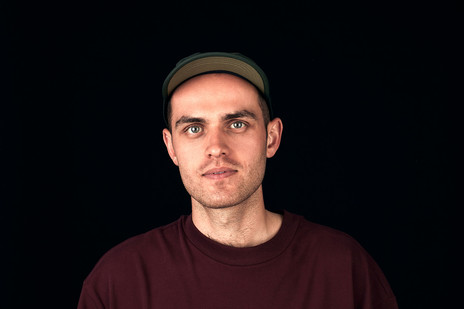
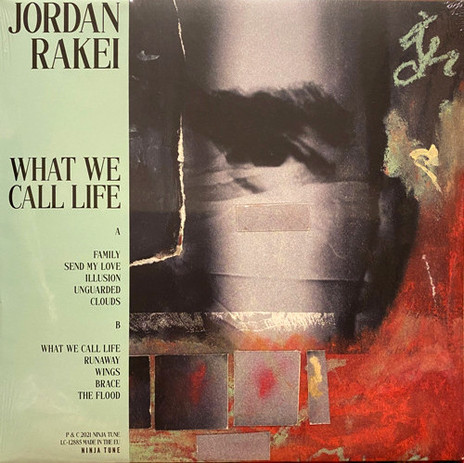
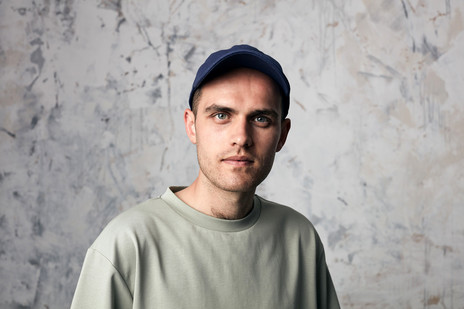
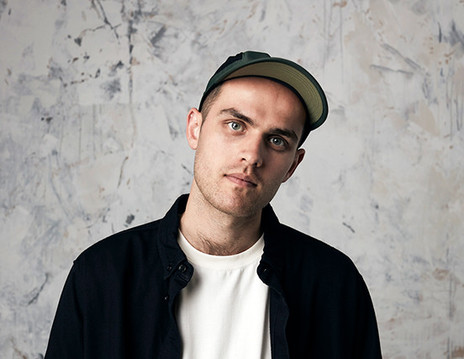
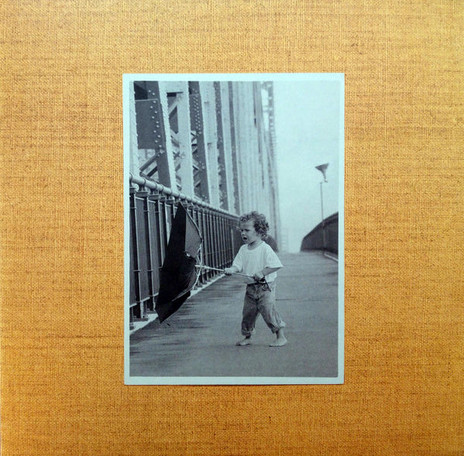
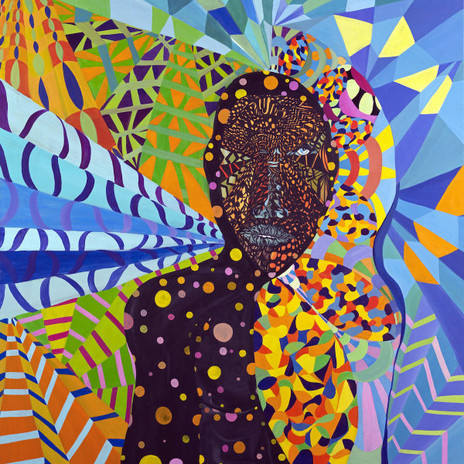
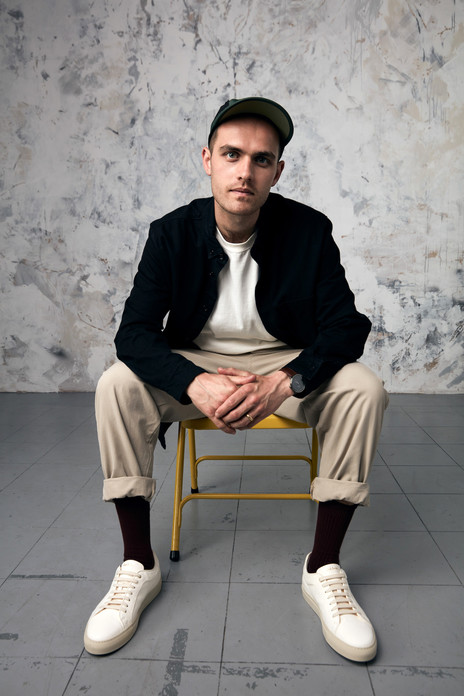
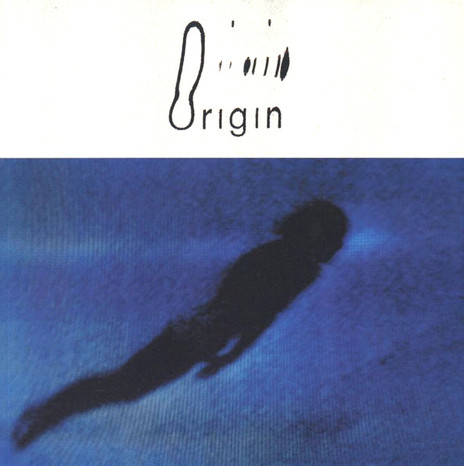
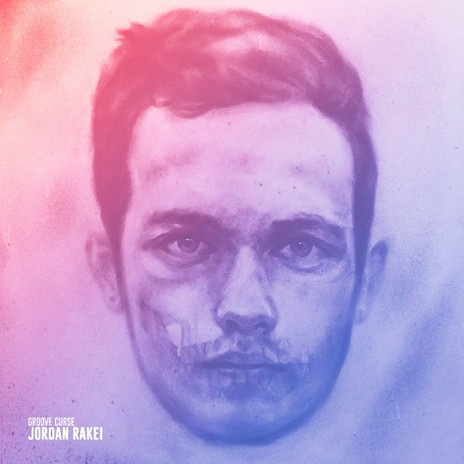
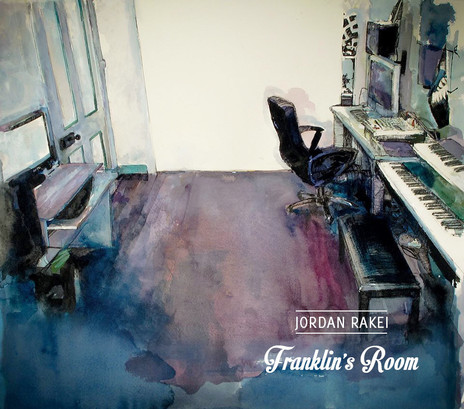
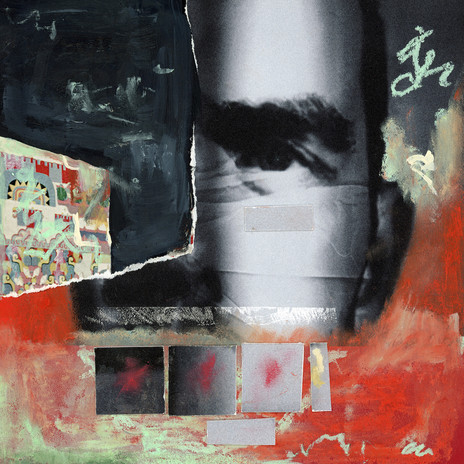
Soul Has No Tempo
Ninja Tune
Visit our sister site
NZ On ScreenMade with funding from
NZ On Air










